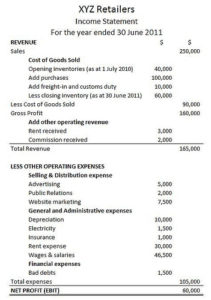The Revenue Recognition Principle States That Revenue Is Recognized When Cash Is Collected
The opposite of the revenue recognition principle is cash accounting.
The revenue recognition principle states that revenue is recognized when cash is collected. The revenue recognition principle states that revenue should be recognized and recorded when it is realized or realizable and when it is earned. C when services are performed. In other words companies shouldn t wait until revenue is actually collected to record it in their books. D only when cash is received.
The matching principle states that expenses should be recognized recorded as they are incurred to produce revenues. Expenses are the result of decreases in assets or increases in liabilities incurred in order to generate revenues. Revenue should be recognized in the period the cash is received. The revenue recognition principle dictates that revenue should be recognized in the accounting records a at the end of the month.
Revenue should be recognized in the balance sheet. Cash accounting states that revenue should be recognized only when the cash is collected and not when the goods are sold. A product or service must be provided. Revenue recognition principle a part of accrual accounting is superior to cash accounting.
Revenue recognition vs cash accounting. According to the revenue recognition principle revenue is recognized at the time that cash is collected from a customer for services to be provided in the future. Cash must be collected. The earnings process must be completed.
False revenue is recognized when the company transfers promised goods or services to its customer in the amounts it expects to receive. The matching principle states that expenses should be matched with the revenues they help to generate. Revenue should be recognized in the period earned. An expense is the outflow or using up of assets in the generation of revenue.
Gaap requires that the accrual basis accounting principle be used in the revenue recognition process. According to the revenue recognition principle revenue is recognized at the time that cash is collected from a customer for services to be provided in the future. Expense recognition is closely related to and sometimes discussed as part of the revenue recognition principle. B in the period that income taxes are paid.
Revenue is a component of common stock. The revenue recognition principle a feature of accrual accounting requires that revenues are recognized on the income statement in the period when realized and earned not necessarily when cash. The revenue recognition principle states that revenues should be recognized or recorded when they are earned regardless of when cash is received.
